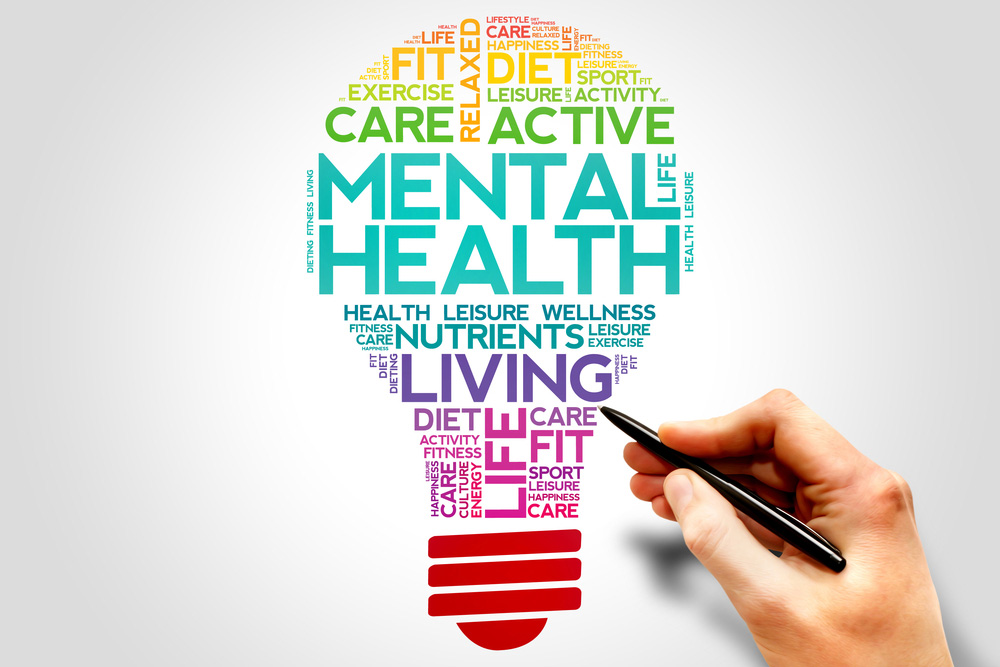Discover effective strategies for improving mental health, managing anxiety, and reducing stress. Enhance your well-being and find relief.

Introduction:
Maintaining good mental health is essential for overall well-being and a balanced life. In today's fast-paced and demanding world, it's crucial to prioritize self-care and implement strategies that promote mental wellness. This article will explore the best ways to improve your mental health, focusing on effective strategies to address anxiety, depression, and stress.
1. Prioritize Self-Care
Self-care plays a vital role in improving mental health. Take time for activities that bring you joy and relaxation, such as engaging in hobbies, practicing mindfulness or meditation, spending time in nature, or pursuing creative outlets. By making self-care a priority, you can recharge and replenish your mental and emotional well-being.
2. Nourish Supportive Relationships
Strong and supportive relationships are fundamental to mental health. Cultivate meaningful connections with friends, family, and loved ones. Nurture these relationships by engaging in open and honest communication, actively listening to others, and expressing your feelings. Building a support system helps create a sense of belonging, fosters emotional support, and provides a space to share both joys and challenges.
3. Practice Mindfulness and Stress Management
Mindfulness and stress management techniques are effective in reducing anxiety, depression, and stress. Incorporate activities such as meditation, deep breathing exercises, or yoga into your daily routine. These practices help cultivate present-moment awareness, enhance relaxation, and provide a sense of calmness amidst life's challenges.
4. Engage in Regular Exercise
Physical activity has a significant impact on mental health. Engaging in regular exercise helps reduce symptoms of anxiety and depression, improves mood, and boosts overall well-being. Find activities you enjoy, such as walking, running, dancing, or practicing yoga, and aim for at least 30 minutes of exercise most days of the week.
5. Foster Healthy Sleep Habits
Adequate sleep is essential for mental and emotional well-being. Establish a consistent sleep routine, aiming for 7-9 hours of quality sleep each night. Create a relaxing environment in your bedroom, limit screen time before bed, and practice relaxation techniques to improve the quality of your sleep. Prioritizing good sleep habits will positively impact your mental health.
6. Practice Healthy Eating Habits
Nourishing your body with a balanced diet can have a profound effect on mental health. Consume a variety of fruits, vegetables, whole grains, lean proteins, and healthy fats. Limit processed foods, sugary snacks, and excessive caffeine. Proper nutrition provides essential nutrients that support brain health and contribute to overall mental well-being.
7. Seek Professional Help
If you're experiencing persistent or severe symptoms of anxiety, depression, or stress, it's important to seek professional help. A mental health professional, such as a therapist or counselor, can provide guidance, support, and evidence-based treatments tailored to your specific needs. They can help you develop coping mechanisms, provide psychotherapy, or prescribe medication if necessary.
8. Limit Stressful Triggers
Identify and limit exposure to stressful triggers in your life. This may involve setting healthy boundaries, learning to say no when necessary, and prioritizing activities that bring you joy and peace. Eliminating or reducing unnecessary stressors can significantly improve your mental well-being.
9. Practice Gratitude and Positive Thinking
Cultivate an attitude of gratitude and positive thinking. Regularly acknowledge and appreciate the good things in your life. Keep a gratitude journal, where you write down things you're thankful for each day. Positive thinking can help reframe negative thoughts, improve your outlook on life, and enhance your mental resilience.
10. Engage in Activities that Bring Joy
Engaging in activities that bring joy and fulfillment is essential for mental health. Pursue hobbies, interests, and passions that ignite your enthusiasm and creativity. Whether it's painting, playing an instrument, gardening, or engaging in sports, allow yourself time to indulge in activities that bring you happiness and a sense of purpose.
Conclusion
Improving your mental health requires a holistic approach that encompasses self-care, supportive relationships, stress management, regular exercise, healthy sleep and eating habits, seeking professional help when needed, minimizing stress triggers, cultivating gratitude, and engaging in activities that bring joy. By incorporating these best practices into your daily life, you can enhance your mental well-being, find relief from anxiety and depression, and lead a fulfilling and balanced life.















COMMENTS